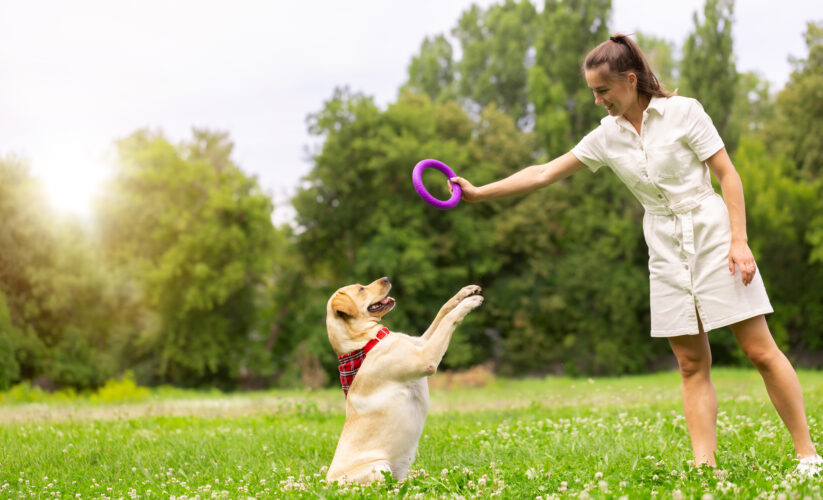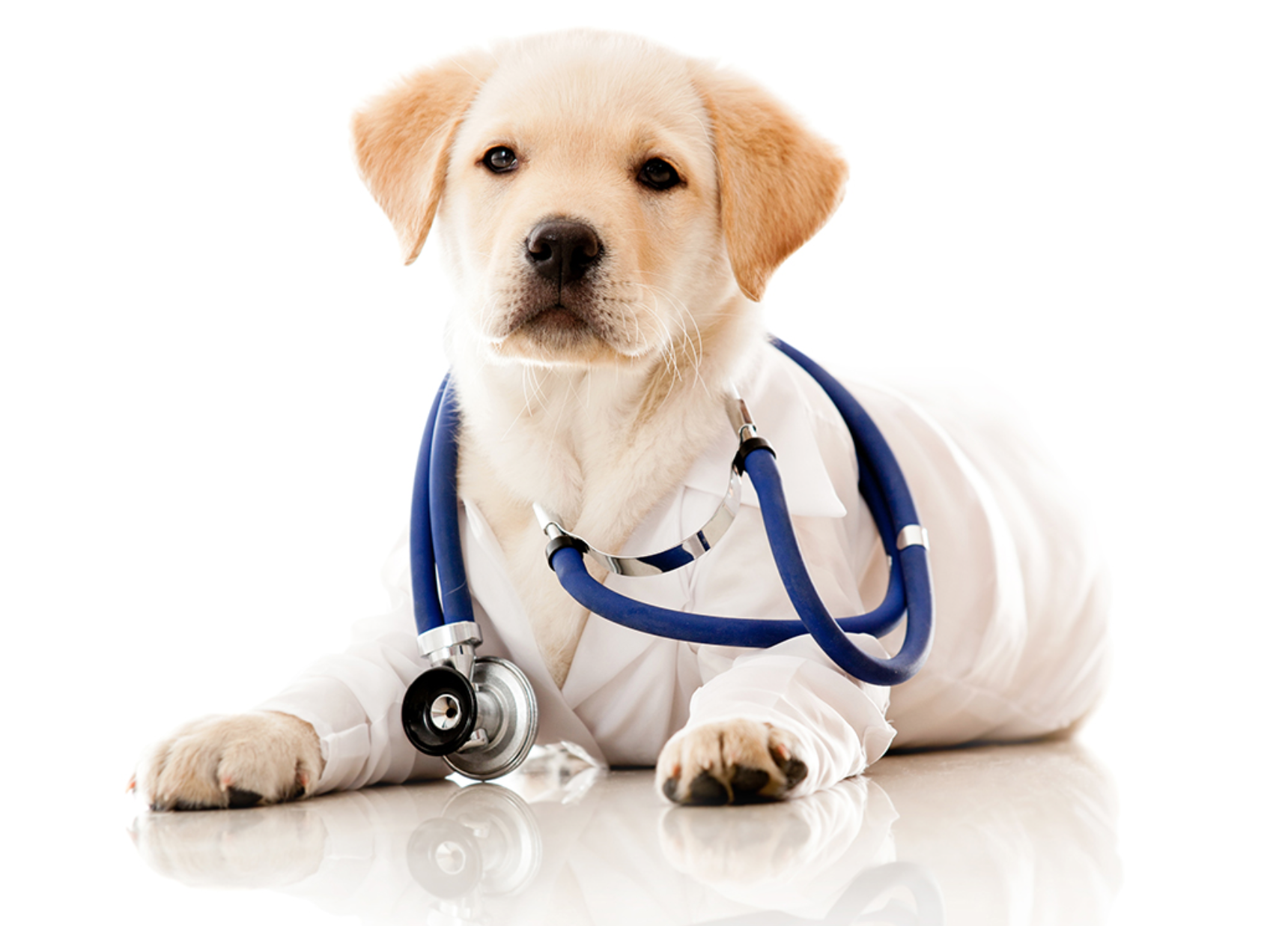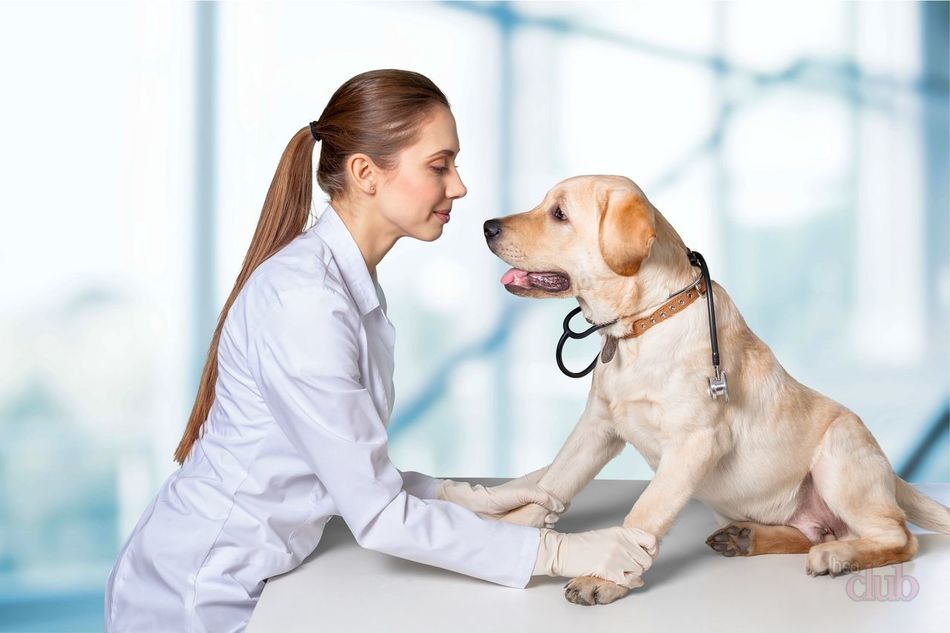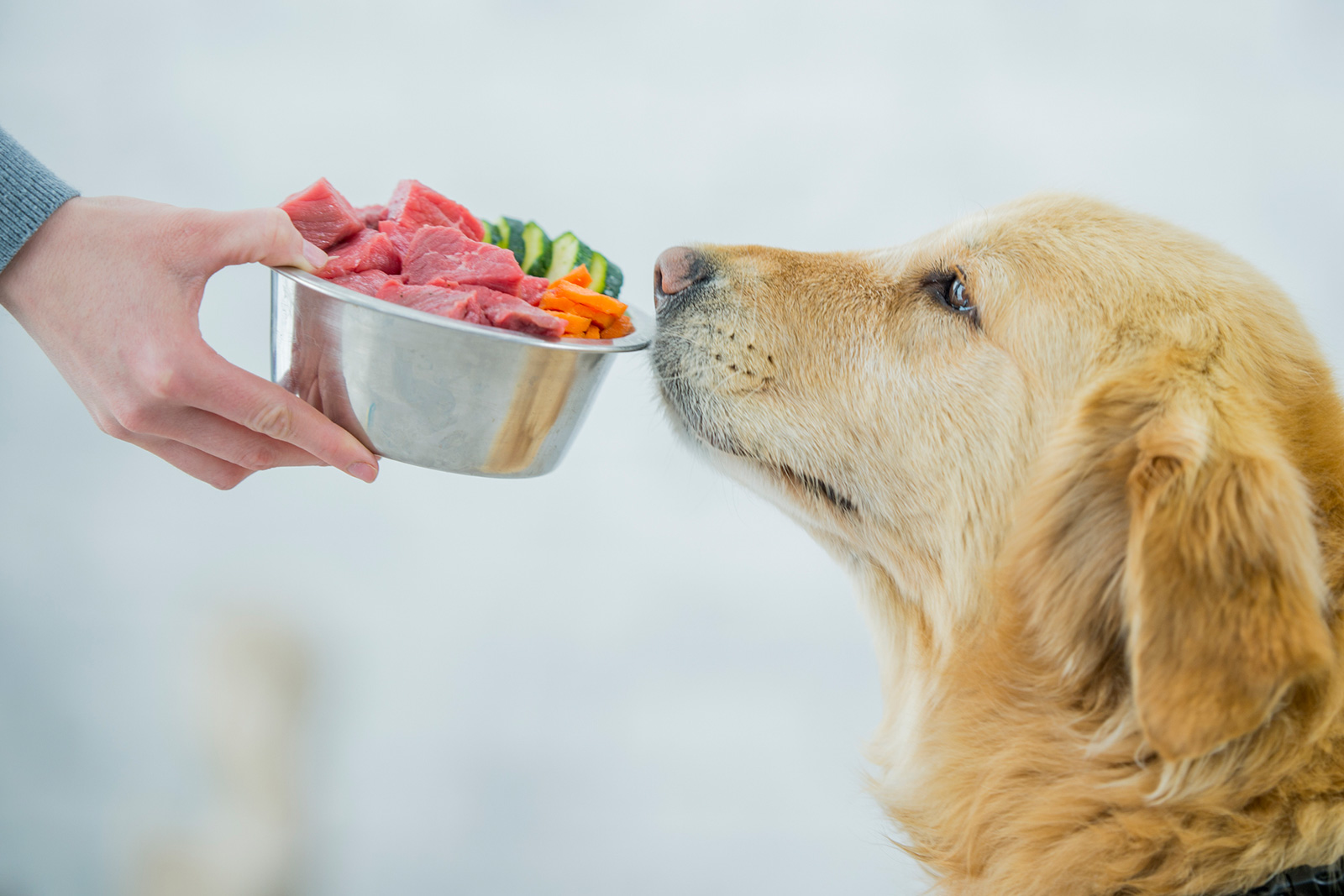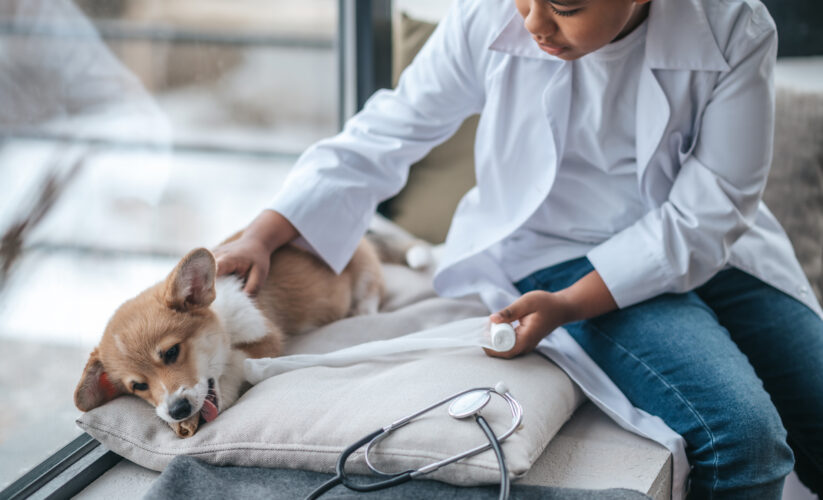
The Importance of Regular Vet Check-Ups for Your Dog
Do you know the secret signs your dog might be sick? Dogs often hide their pain, making it hard for us to notice. Regular vet check-ups are key to catching health problems early. But, what’s the real importance of vet check-ups, and how do they help with dog health maintenance before symptoms show?
Vets can see what we can’t, like when a wagging tail hides pain. During check-ups, vets check your dog from head to tail. These visits are crucial for finding health issues early before they get worse.
Did you know that 49% of pet owners skip routine vet visits? Pet health is more than just treating sickness. It includes regular check-ups, monitoring vital signs, and keeping vaccinations up to date. Regular vet visits help prevent emergencies.
Think about these facts: 68% of pets see the vet every year, but many don’t. This means they might face health problems that could have been prevented. Your vet’s advice on food, exercise, and health is crucial for your dog’s well-being.
Are you proactive or neglectful about your dog’s health? Following vet advice is key to dog health maintenance. As dogs age and bring joy to our lives, we should commit to their health and happiness.
Understanding Your Dog’s Health: The Art of Concealment
Dogs, like the popular Labrador Retrievers, often hide when they’re not feeling well. This makes it hard to spot health problems early. Regular dog health check-ups and routine veterinary visits help catch these issues before they get worse.
Vets use detailed exams during these visits to find early signs of diseases. Small changes in breathing or heart rate could mean a bigger health problem. For example, dogs that don’t chew may get dental problems early.
Dr. Gautam says taking your dog to the dentist every six months is key for canine vet care. Cleaning their teeth is important for their mouth health.
As the most popular breed in the U.S., Labrador Retrievers show why it’s vital for owners to keep up with their dog’s health.
About 40% of dog owners find it hard to give their pets medicine. Teaching your dog to accept medicine early helps. This kind of care is key to keeping your dog healthy.
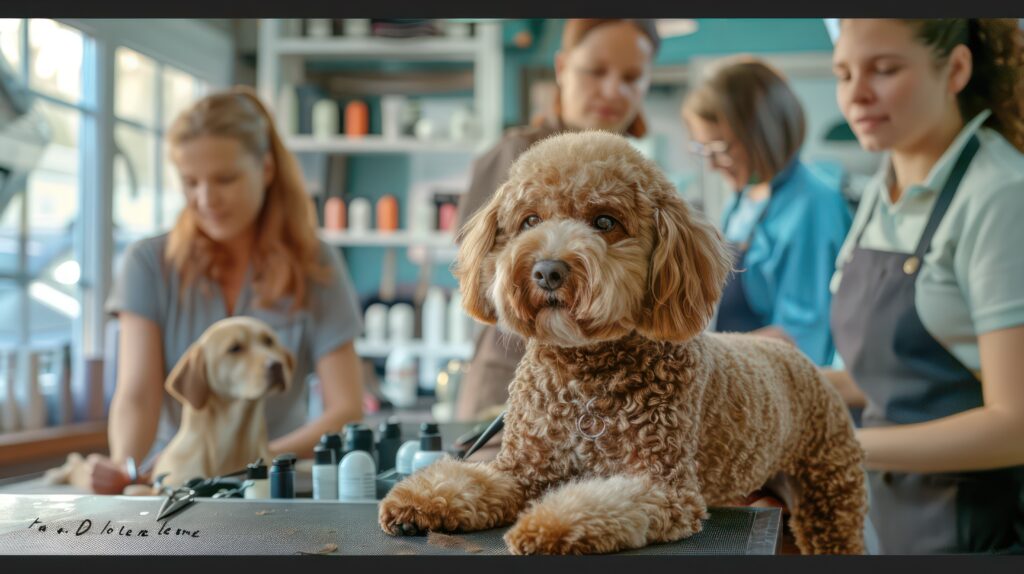
It’s crucial to get our pets regular dog health check-ups and routine veterinary visits. Looking into balanced diets for your pet can also help. A good diet boosts their health a lot. For more info, check out how to make a balanced diet plan for your.
Understanding and dealing with these health issues greatly helps dogs live longer, happier lives. It’s all thanks to the care of their human friends.
What Happens During a Veterinary Physical Examination?
Going to the vet for regular vet check-ups for dogs is key for their health. These visits are vital for catching health problems early. They make sure your pet stays healthy.
At a vet visit, the vet checks your dog’s body part by part. They look at the eyes for any signs of illness. Then, they check the ears for infections, which are common in some dogs.
Next, they inspect the mouth to check dental health. This can show early signs of oral diseases or other health issues.
After that, the vet feels the neck for swollen lymph nodes. These could mean an infection or another health problem. They then check the chest and abdomen for heart and lung health. They look for any signs of stomach issues that could mean organ problems or pain.
These vet visits also focus on checking the joints and your dog’s weight and size. These are important for your dog’s ability to move and live well. Vets can update vaccinations, do screenings for parasites, and suggest ways to prevent problems. This helps keep your dog healthy and happy for a long time.
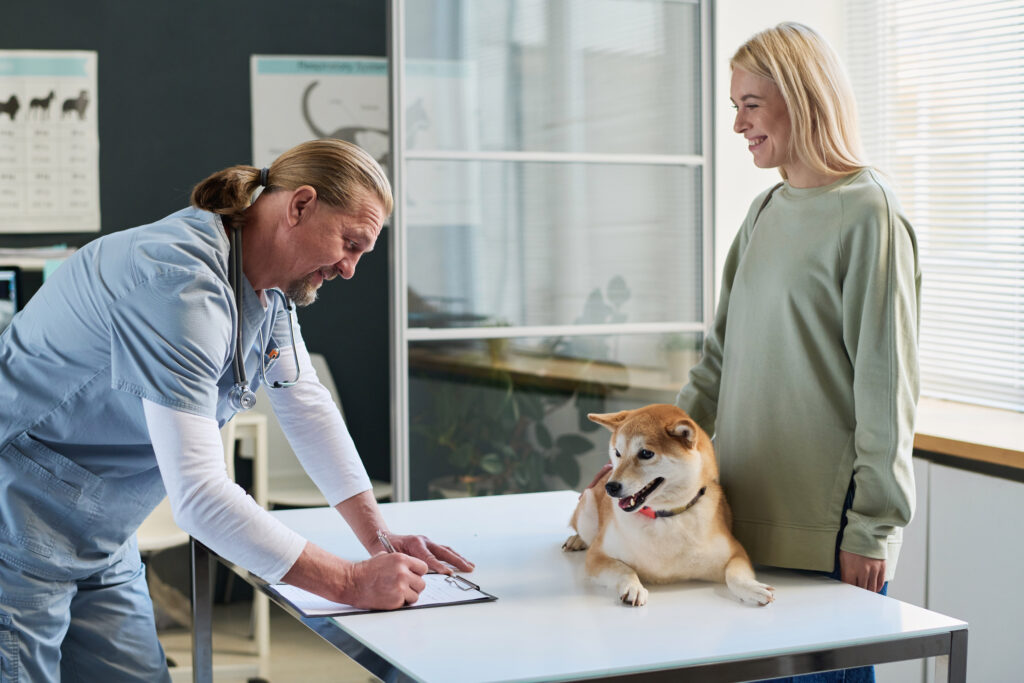
Knowing what happens at these routine veterinary visits shows how important regular vet check-ups for dogs are. By going to the vet regularly, you make sure your dog gets the best care. This leads to a long, healthy, and happy life for your pet.
Preventive Care: The Role of Routine Veterinary Visits
The importance of vet check-ups is huge for your dog’s health and happiness. These visits are key to keeping your pet in top shape. They help catch health problems early, which is key to treating them well.
Dogs age faster than people, so seeing the vet every year is important. At these visits, vets check many health areas, like vital signs and blood pressure. They also do full body checks.
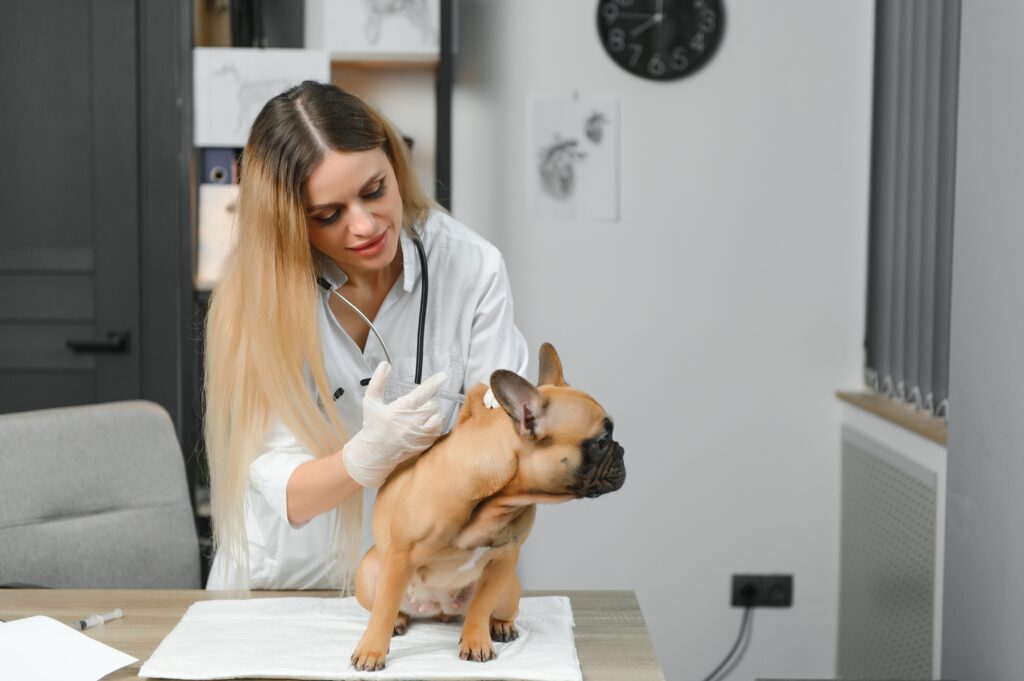
Tests like blood work and urinalysis are part of these visits. They help spot problems like diabetes and kidney disease early. Catching diabetes early can really help your dog’s life quality. Tests for heartworm and Lyme disease are also important, especially in certain areas.
During vet visits, you also talk about shots, parasite prevention, and how to feed and exercise your dog. These steps help keep your dog healthy and safe. They also help you and your vet work together to care for your pet’s specific needs.
Looking after your dog’s diet can also stop future health problems. This is good for your dog and the planet. Regular dental care, weight checks, and talking about behavior are also key. Slimmer dogs often live longer and healthier.
Understanding the importance of vet check-ups shows how vital they are for dog health maintenance. By going for regular vet visits, you can make your dog’s life longer and better.
Regular Vet Check-Ups for Dogs: Financial and Emotional Benefits
Regular vet check-ups for dogs have big financial and emotional benefits for pet owners. Dog Haven shows how important it is to take care of your dog’s health early. This can save money and prevent health problems later.
Going to the vet often can catch health issues early. This means you might not have to pay as much for treatment. For example, catching diabetes or heart disease early can save a lot of money and stress.
Conditions like obesity and dental problems can also be caught early. Managing them early can save you from big vet bills later. It’s better and cheaper to deal with these issues when they’re small.
Knowing your pet is healthy gives you peace of mind. Regular vet visits help you build a strong relationship with your vet. This makes it easier to talk about your dog’s health and get the best care for them.
Pet insurance plans can help spread out the cost of care. Early on, you might pay less than $20 a month for wellness plans. These plans cover things like vaccines and health checks, keeping your dog healthy.
Regular vet visits and wellness plans save money and prevent serious diseases. They’re a smart choice for keeping your dog healthy and happy.
The cost of preventive veterinary care is worth it. Regular vet visits save you money by preventing costly diseases. They also give you peace of mind, knowing your dog is in good health.
Tailoring Your Dog’s Well-Being: The Importance of Vet Check-Ups
Looking after your dog’s health is crucial. It shows how vital routine veterinary visits are. Dogs need health checks that fit their unique needs, just like humans do. These visits are key because vets can spot health issues that pet owners might miss.
Vets do thorough exams during check-ups. They watch for health changes in your dog. They check vital organs, body weight, and more. They also keep vaccinations and flea treatments current.
At these visits, vets often find early signs of dental and skin problems. These include things like tartar buildup and itching. Catching these issues early can help prevent bigger problems later.
These regular check-ups are key for dog health maintenance. They help prevent health problems before they start. By going to the vet often, you can save money on future vet bills by catching issues early.
Visits to the vet are also a chance to talk about your dog’s specific needs. Vets can give advice on food, behavior, and caring for older dogs. This advice helps keep your dog healthy and happy.
Good vet care does more than keep your dog healthy. It makes their life better and longer. Remember, the aim of regular vet visits is to help your pet live a long, happy life.
Dog Health Maintenance and Vaccination Schedules
Keeping your dog healthy is key and requires more than just vet visits now and then. Dog health check-ups are vital for your pet’s well-being. They keep your dog up-to-date on shots and help catch diseases early. The American Kennel Club suggests yearly check-ups for adult dogs, which is good for their health.
Puppies need to see the vet every month until they’re about 16 weeks old. They get shots for distemper, hepatitis, and parvovirus. Adult dogs need shots every few years, like for DHPP and rabies. These shots are key to preventing serious diseases and are required by law in North America.
Canine vet care also means checking your dog’s weight, teeth, and for fleas and ticks. Senior dogs should see the vet every six months because they often have ongoing health issues. Vets might suggest special diets or exercises to help them age well.
The American Society for the Prevention of Cruelty to Animals says to neuter or spay your dog around six months old. Some big breeds might wait a bit longer. This shows how important it is to tailor vet care to your dog’s specific needs.
Owners should know when to get immediate vet help, like if your dog is having trouble breathing or looks pale. Regular vet visits teach owners these important signs, so they can act fast if needed.
Overall, dog health check-ups and routine veterinary visits stop many diseases and strengthen the bond between dogs and their owners. They show a commitment to health and wellness.
Senior Dogs: Special Considerations for Aging Canines
As dogs get older, they need more vet check-ups. Dogs are considered seniors around 7 years old. For bigger breeds, this is even earlier, at 5 or 6. Senior dogs often face health issues like arthritis, which affects about 20% of dogs over a year old. Gum disease also becomes common, hitting 85% of senior pets by age three.
Regular vet check-ups help monitor these issues. This ensures our dogs get the care they need.
Older dogs face more than just joint and dental problems. They can also experience cognitive decline, leading to changes in behavior. Senior dogs may suffer from diabetes, organ diseases, or canine cognitive dysfunction. Regular vet visits help catch these issues early and manage them effectively.
Vets often suggest check-ups every six months for seniors. This keeps their health in check and allows for quick action if problems arise.
As dogs age, their nutritional and physical needs change. They’re more likely to become overweight and need diets that help them keep muscle mass while controlling calories. Senior dog food is made with special amino acids and proteins for their needs.
Changes in their living environment can also make a big difference. Things like comfy bedding, ramps, and sensory aids can improve their quality of life. Regular vet check-ups are key to caring for senior dogs. When combined with a loving home, they can live a happy and comfortable life.


